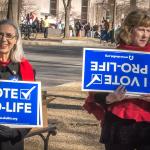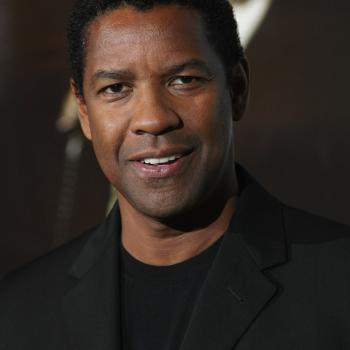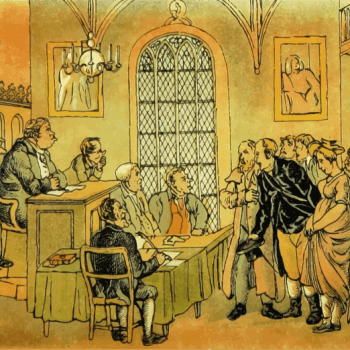The attempted assassination of Donald Trump is an extreme example of the visceral hatred that he inspires in some people, particularly among political liberals. But the reaction to that attempted assassination is also an example of the visceral love that he inspires in other people, particularly among political conservatives.
Why is that? Though the difference falls along political lines, I don’t think the reasons are primarily matters of ideology or policy. The fact is, Trump is actually hard to classify politically.
If you look at Trump’s policies, some of them come right out of the liberals’ playbook and flatly oppose conservative orthodoxy. And yet liberals give him no credit and conservatives support him no matter what he believes.
For example, the Heritage Foundation, the leading conservative think tank, has spent months putting together the 900-page Project 2025, which presents a comprehensive policy and personnel plan to implement the traditional conservative agenda, including a department by department reform of the federal bureaucracy. Trump’s reaction? “I disagree with some of the things they’re saying and some of the things they’re saying are absolutely ridiculous and abysmal.”
In its place, Trump is supporting the 16-page 2004 Republican Party Platform, which drops opposition to abortion and says nothing about the traditional conservative concerns about balancing the budget and reducing the national debt.
The Freedom Caucus is the most conservative faction in Congress, but Trump has ousted its leader for supporting his rival Ron DeSantis by supporting a more centrist candidate in the primary election.
Trump is the anti-war candidate, rejecting U.S. interventions such as the Iraq War and showing skepticism about our support of Ukraine. He is also pro-tariff and a critic of the big corporations. All of these positions are usually associated with the left.
On cultural issues, Trump is opposed to a nation-wide ban, considering the overturn of Roe v. Wade, which he was largely responsible for, meaning that the issue must be decided on a state-by-state basis. He supports same-sex marriage, having the Republican platform drop the traditional platform language specifying that marriage is “between one man and one woman.” He has been called “the most pro-gay president in American history” and has been an active participant in the sexual revolution.
But liberals paint him as a right-wing extremist.
Part of their reason for liberals’ extreme antipathy to Trump is their resentment that Trump has successfully taken over what used to be the Democrats’ base: the white working class. He is also encroaching on their turf by making inroads with the black and Hispanic working class. But how did he pull that off? What has he done–or what have Democrats done–to make that possible?
To be sure, Trump is a populist–embodying a politics of “the people”–but such movements are often left-leaning. He is a nationalist, which is associated with conservatism, though not necessarily. He is anti-woke and refuses to bow to political correctness, but that’s just a strange permutation of the left, a shift from class and economics to identity politics, something orthodox Marxists also complain about. But these positions all go against the grain of contemporary progressivism.
Trump is opposed to unchecked immigration. That used to be a Democratic issue, since keeping out low-wage workers was important for unions and blue collar workers, whereas pro-business Republicans were the ones who were more open to immigration as a source of cheap labor. Trump is strongly against our current open borders, something liberals believe lacks compassion or is even racist. And yet Trump’s immigration policy may be more generous than he makes it sound. He has proposed automatically giving foreign graduates of American universities and community colleges a green card with their diplomas, which would both invite a wave of immigrant students and bail out our troubled colleges that are hotbeds of opposition to him.
Judging by his policy proposals alone, Trump would come across as pretty centrist, if not center-left.
But it isn’t so much the policies that either side reacts to. It’s the personal qualities of Donald Trump that antagonizes the left and energizes the right. His abrasive personality, his refusal to conform to conventional standards, his rebellion against the status quo infuriate affluent progressives, the well-educated elite that have replaced the working class in the Democratic Party, because they have become the status quo.
The less well off feel the elites’ condescension, their sense of superiority, their do-gooder attempts to change their attitudes in on-the-job woke seminars and regulation of their lives in the name of COVID, the environment, or feminism, or transexual sensitivity, or climate change, or whatever. They can’t stand it. So they gravitate to Trump, appreciating his fighting spirit. The more the “establishment” puts him on trial and convicts him of abstruse crimes, the more they identify with him and the more they support him.
They see an establishment trying to get rid of Trump by trying to put him in jail, which just proves what they believe about the establishment and about what they like about Trump. That someone has tried to assassinate him–and his brave defiance–makes him even more beloved.
One fear is that Trump has an authoritarian personality, that his oversized ego, his apparent enjoyment of hobnobbing with authoritarian leaders, and his refusal to accept the results of the last election, make him a threat to democracy. It is true that personality cults can lead to authoritarianism. That can happen from the right. It is also true that the impulse to control people, which we are seeing from the left, is also capable of bringing on authoritarianism. If democracy is in danger, it isn’t Trump’s fault, it’s our fault. Actually, though, populism–that is, a political movement of “the people”–is democratic to a fault, something the aristocrats, plutocrats, and technocrats of our new ruling class in the Democratic Party cannot tolerate.
It’s also possible, of course, to disapprove of the man on moral grounds but to approve of his policies, or some of his policies. That’s the dilemma of many conservative Christians. They are further confounded by their sense that his opponent would be a worse alternative, whether as a man–because he is too elderly and weak–or for his leftwing, pro-abortion policies. Their choice of a candidate is more calculated rather than visceral.
But there are indeed reasons for the visceral hatred and the visceral love that Trump calls forth. Do you have any other theories?
Photo by Evan Vucci – Original publication: https://www.businessinsider.com/trump-photos-secret-service-rushing-blood-ear-2024-7Immediate source: https://www.businessinsider.com/trump-photos-secret-service-rushing-blood-ear-2024-7, Fair use, https://en.wikipedia.org/w/index.php?curid=77350262
















